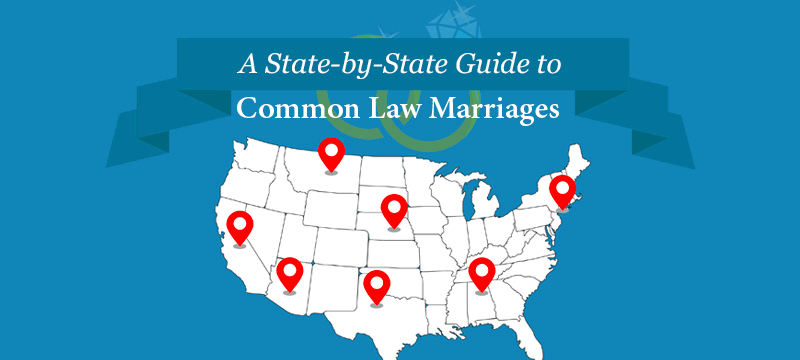Common Law Marriage Property Rights in New York
The concept of common law marriages remains murky even in places like New York. Though common law marriage is unrecognized in the state of New York, some types of relationships are accepted. Therefore, it is important to ascertain how these relationships function, especially concerning property rights and legal consequences. Essentially, common law marriage implies that couples cohabitate and act as though they are married without any formal ceremony taking place or a marriage license being acquired. However, in New York, couples should look for different legal alternatives to safeguard their interests.
Criteria for Establishing Common Law Marriage

Despite New York’s lack of recognition for common-law marriages, certain conditions must be met by some couples should they wish to legalize their union in different states. The following is a deeper insight:
- Co-habitation: The couple must live together for a significant period, typically several years.
- Intent to Marry: Both partners must intend to be married, showing commitment through shared responsibilities.
- Public Representation: They must present themselves as a married couple to friends, family, and the community.
However, if you want to obtain legal benefits associated with this type of union, it is important to be aware that there are some states allowing it although not all couples can satisfy their criteria.
Property Rights of Common Law Spouses

For couples who see themselves in a common-law marriage, property rights can be rather complicated issues. Property rights depend on the couple’s way of structuring their relationship because this state does not recognize such marriages officially. Thus here are some essential points to take note of:
- Joint Property Ownership: If the couple has joint property, both parties may have rights to it. It’s advisable to keep documentation to prove joint ownership.
- Separate Property: Any property owned before the relationship usually remains the separate property of the original owner, unless it has been explicitly transferred.
- Contracts and Agreements: Couples can create cohabitation agreements to outline property rights and responsibilities, providing clarity in case of separation.
To make sure both parties are safe, writing some kind of agreements with clarity and keeping following documents in mind can help handle probable conflicts.
Division of Property Upon Separation

The matter of how to divide property can be really important when two people in a romantic relationship choose to go their separate ways. Understanding property division among couples who live together as though they are married but aren’t recognized as such by law can be difficult. Without the legal framework of marriage, couples must rely on various factors to determine who gets what. Here’s what you should know:
- Ownership Evidence: The couple’s name on property deeds, bank accounts, or other financial documents often serves as evidence of ownership. This documentation is crucial in disputes.
- Contributions Made: Courts may consider the financial contributions made by each partner towards acquiring or maintaining property. This includes both monetary and non-monetary contributions.
- Agreements: If there are any agreements, either written or verbal, that outline property rights, these can play a significant role in determining the outcome.
Dividing property in the absence of a legal marriage can be debatable, but it is possible to resolve the division with clearer communication and documentation for a fair settlement.
Impact of Formal Marriage on Common Law Rights
For those couples who interpret this to mean then use it to inform their move from cohabitation to the rite of marriage, it is necessary that they glance through some matters. This is especially true in New York where starting a formal union can shake the legal environment around them. This too, becomes clearer when you consider:
- Recognition of Rights: Formal marriage provides automatic recognition of rights and responsibilities that common law relationships lack. This includes rights to inheritance, spousal support, and health benefits.
- Property Rights Changes: Upon marriage, property acquired during the marriage is typically considered marital property, subject to equitable distribution in case of divorce.
- Legal Protections: Married couples enjoy various legal protections under state law, including those related to taxes, insurance, and healthcare decisions.
Shifting to a formal union gives rise to several advantages, but couples must be cautious regarding the previous mutually accepted contracts or arrangements that hang over them and how these might adversely affect their fresh legal existence.
Legal Protections for Common Law Partners
In spite of the fact that New York does not allow common law marriage, there are legal safeguards for couples living in committed relationships. Awareness of these protections can help partners uphold their respective rights. Here are some key considerations:
- Cohabitation Agreements: Couples can draft cohabitation agreements to outline their rights and responsibilities, addressing property ownership, financial obligations, and what happens if they separate.
- Domestic Violence Protections: New York provides legal protections for individuals facing domestic violence, regardless of marital status. This means common law partners can seek help from law enforcement and access shelters.
- Health Care Decisions: Unmarried partners may still have the right to make healthcare decisions for each other if they have proper documentation, such as health care proxies or powers of attorney.
In navigating hurdles, common law partners can still keep their relationship intact by being proactive and taking legal measures to safeguard their rights.
Frequently Asked Questions about Common Law Marriage
Common law marriage can raise many questions, particularly for couples who have to deal with the complexities of their relationships in New York. This article answers some of the main questions related to this topic.
- Is common law marriage recognized in New York? No, New York does not recognize common law marriages. However, couples may have rights under other legal frameworks.
- What rights do common law partners have in New York? Common law partners may have limited rights, particularly if they can prove joint ownership of property or have a cohabitation agreement.
- How can I protect my rights as a common law partner? It’s essential to create a cohabitation agreement that outlines property rights and responsibilities to protect your interests.
- What happens to property if a common law relationship ends? Property division will depend on evidence of ownership and any agreements made between the partners, as there’s no formal legal structure to guide this.
- Can common law partners inherit from each other? Without a legal marriage or a will, common law partners generally do not have automatic rights to inherit from each other.
The listed queries represent typical worries, and asking a lawyer included in the list is always an excellent option for individual cases.
Conclusion on Common Law Marriage Property Rights
For your interests’ protection, it is necessary to have thorough knowledge of property rights in New York under the law of common relationships. Even though there is no recognition of common law marriage, partners are able to formulate their rights via cohabitation deals and other papers. Therefore, whether partners are still together or are at the separation stage it is paramount to understand their entitlements so that legal counsel may be sought upon need for a fair result.


